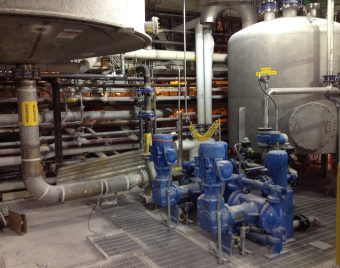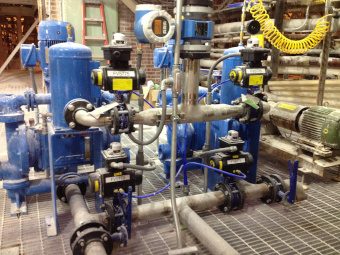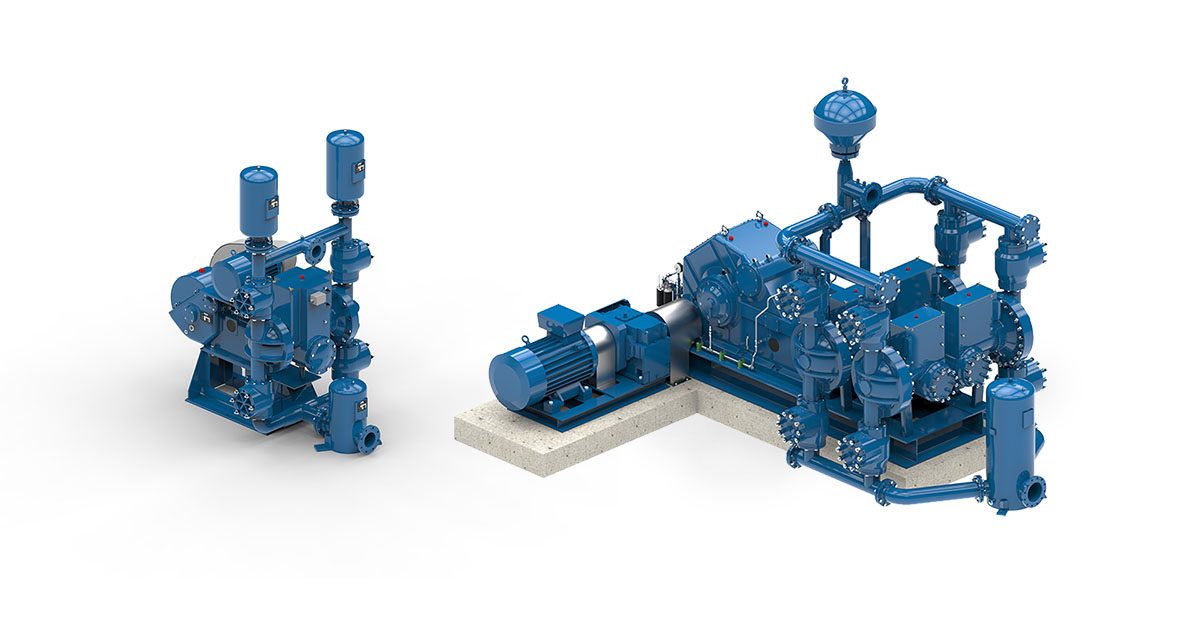Chemical Industry
Chemicals have to be pumped differently
The diverse characteristics of various chemical substances require a variety of techniques for conveyance. ABEL pumps are preferred by many users in the chemical industry because of their hermetically sealed design and the ability to use them with different materials and equipment, e.g. for pumping pyrogenic silicic acid in powder form (ABEL EM), or in the lacquer industry. Several hundred EM pumps are used throughout the world for the hermetically sealed transport of pigment suspensions. This highly reliable pump is also suited for gently conveying viscous and shear-sensitive fluids. Moreover, the EM is available with nil-flow control system, which allows to stop the pump under pressure. HM series pumps are better for higher pressures, and our HPT pumps are more suited for clean, noncritical media.
For example, sensitive fluids require a gentle, slow pump stroke with backflow protection. By contrast, pumping extremely corrosive substances requires ABEL pumps that are built rugged enough. We offer pumps on which the parts that come into contact with the media are made of plastic and high-quality stainless steel.
Depending on the substance to be pumped, our membranes are made from PTFE, fluoropolymer rubber, or EPDM. For toxic substances, the hermetically sealed design of all ABEL diaphragm pumps is practically indispensable. For applications involving combustible fluids, many of our pumps are available with ATEX certification.
Pump Applications in the Chemical Industry
Transport of powders, dyes, dispersion paints and other chemical liquids/chemicals
Filter press feeding with chemical wastewater/sludge
Spray dryer feeding to produce granules/powder
Advantages of ABEL Pumps
Filter Press Feed with EODD Pumps
Our customer processes silica flour into a variety of Silica and Silicate products used in the Rubber, Paper, Chemical and Dental markets. As part of the silicate process, a wastewater stream is generated containing unreacted silica which is reusable, as well as waste solids. The solids are separated from the liquid components during the subsequent filter press feed. The filter press provides effective separation, ensuring high dry solids content in the filter cake and maximizing the recoverable/reusable silicate water.
Process Optimization with Diaphragm Pumps
The new filter press system would include two diaphragm pumps. Our customer has typically used Air Operated Diaphragm (AOD) and centrifugal pumps within the process, and so these were evaluated. In conjunction with the press OEM, diaphragm pumps were selected as the best applied technology for the process. However, air usage and the subsequent cost were also of concern and so our customer explored the possibility of using electric driven diaphragm pumps in lieu of the AODs. As a result, ABEL model EM pumps were chosen and installed in the process.
A year after start-up, the ABEL model EM electric diaphragm pumps perform well with minimal wear part replacement. Along with the recessed plate filter press, the EM positive displacement pumps remove nearly two times more silicate water for reuse than the previous belt press system (I.e. an improvement of the filter press cake from 44% solids by weight to 72% solids by weight).





